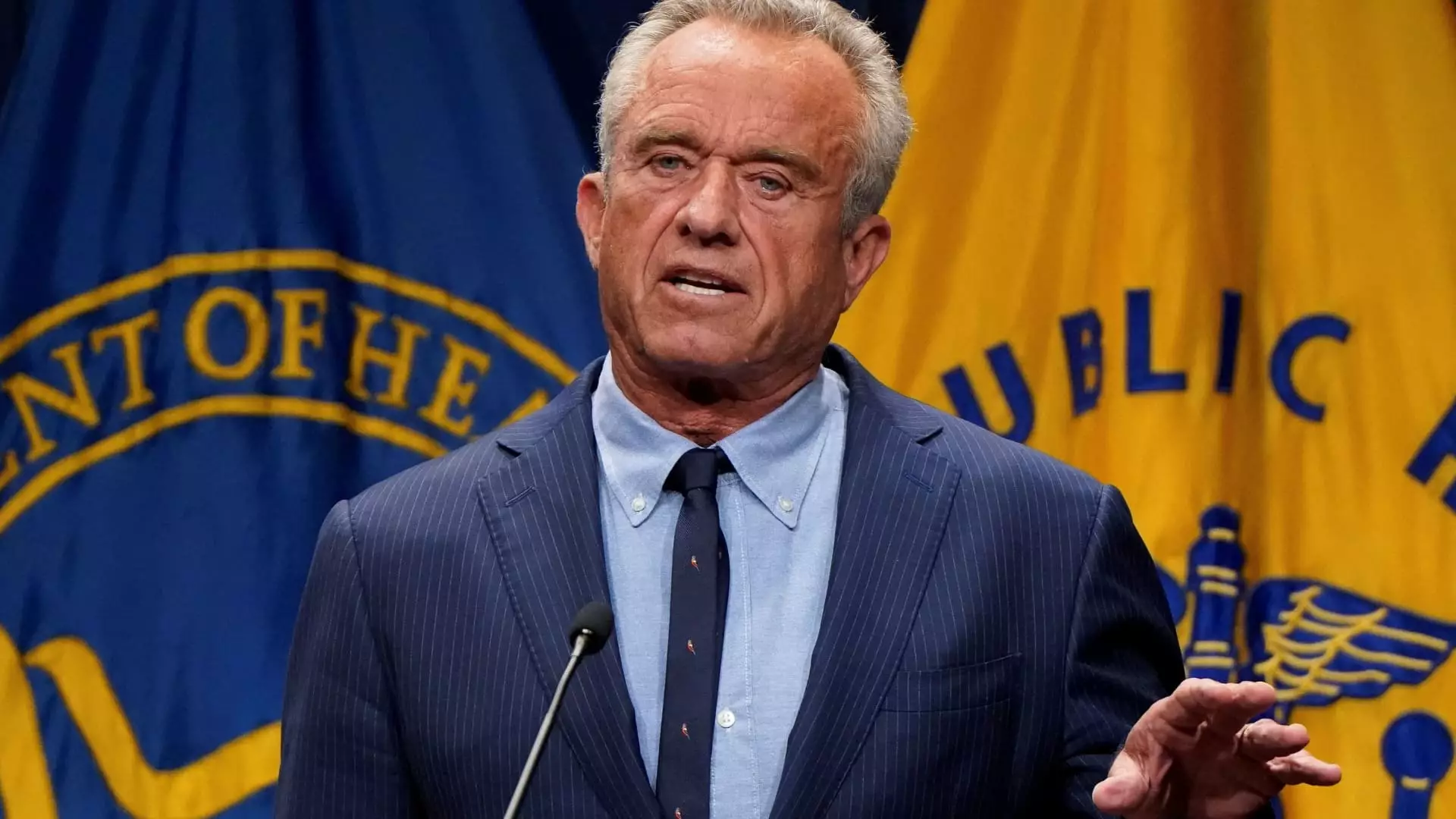The recent shake-up within the Advisory Committee on Immunization Practices (ACIP) under Health and Human Services Secretary Robert F. Kennedy Jr. raises alarm bells for public health advocates. By dismissing the entire pre-existing committee and appointing eight new members, many of whom are vocal vaccine skeptics, Kennedy has effectively threatened the integrity of U.S. vaccine policy. This unprecedented move not only undermines public health but also sets a precedent for the politicization of science, potentially risking lives in a climate already saturated with disinformation.
Kennedy’s selections were no accident; he has deliberately chosen individuals renowned for their dismissive stance on vaccines. The inclusion of Dr. Robert Malone—who has mischaracterized the effects of measles and has gained notoriety in the anti-vaccine community—speaks volumes. While Kennedy may tout these new members as “highly credentialed,” their track records suggest a trend that deviates sharply from evidence-based practice, raising concerns that this body will prioritize personal ideology over public health.
Voices of Concern Within the Medical Community
The national health discourse erupted in outrage following Kennedy’s appointments, with experts warning that the committee’s recommendations may now reflect anti-vaccine ideals rather than the rigorous scientific evaluation that ACIP was historically known for. Lawrence Gostin, a respected figure in public health law, rightly labeled the staffing changes a “national tragedy,” asserting they pose a “major threat to children’s health.” Tragically, his insights resonate deeply in the wake of recent measles outbreaks, which underscore the real-life consequences of vaccine hesitancy.
Dr. Paul Offit, an esteemed pediatric infectious disease specialist, did not mince his words: “I think the public is not going to be getting the same quality of advice as we had before the purge.” His words encapsulate the pervasive sentiment echoing throughout the public health landscape, illuminating the potential decline in expertise among ACIP’s advisory members. No matter how Kennedy frames his choices, the appointment of anti-vaccine activists could dilute the quality of guidance that has historically been grounded in scientific rigor.
The Role of Vaccine Misinformation
The implications of appointing individuals from the growing anti-vaccine movement cannot be overstated. The credibility of vaccines has been challenged over the years by various factions pushing misinformation—an increasingly powerful force that has sown doubt among the populace. By elevating vocal skeptics to key advisory positions, Kennedy lends undue legitimacy to their rhetoric. This move is akin to inserting a fox into the henhouse; it could exponentially deepen the already entrenched fears about vaccination risks.
Take, for example, Vicky Pebsworth—a nurse whose affiliation with the National Vaccine Information Center is highly controversial. This organization has been persistently criticized for disseminating misleading information about vaccines, primarily focusing on fostering fear rather than facts. This brand of misinformation is not harmless; it can create vaccine hesitancy that exponentially increases infectious diseases that vaccines effectively prevent, threatening the health of children and communities at large.
The Future of Vaccine Accessibility and Trust
The ramifications of Kennedy’s appointments may extend far beyond committee meetings. As ACIP recommendations heavily influence vaccine availability and insurance reimbursement policies, the decisions made in these advisory meetings have a cascading effect on public health initiatives across the country. If the committee’s efficacy diminishes under the weight of flawed reasoning, fewer parents may opt to vaccinate their children, resulting in a resurgence of preventable diseases.
Equally concerning is the potential ripple effect of this change on public trust. If constituents observe a significant shift toward anti-vaccine sentiment within federal health advisory bodies, they may become increasingly wary of government-recommended vaccinations. The erosion of trust could hamstring public health campaigns and complicate efforts to achieve herd immunity against vaccine-preventable diseases.
A Call for Responsible Governance
The controversial reshaping of ACIP should incite calls for accountability and reflect a broader societal urgency to safeguard public health. While society grapples with the consequences of misinformation, especially in a post-pandemic world, it is crucial that influential positions in health governance remain anchored in evidence-based science and critical reasoning—not swayed by populist movements driven by fear and skepticism.
Kennedy’s recent decisions are a harbinger of possible systemic neglect for scientific integrity in favor of ideological alignment, indicating a worrying trend in healthcare governance. As guardians of public health, we must demand better, prioritize facts over fervor, and stand resolutely against the rise of anti-vaccine sentiments that could cost countless lives.

